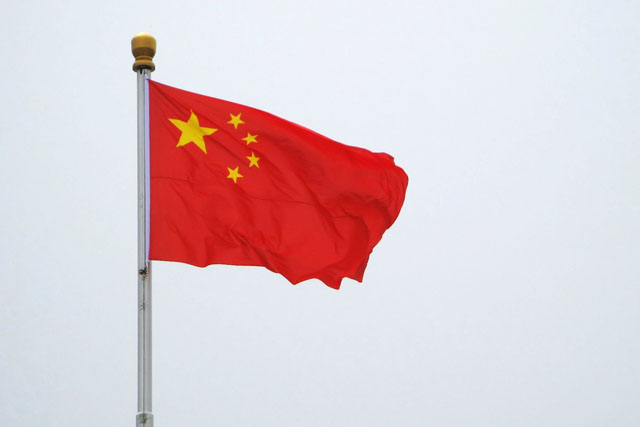Are you frequently awoken by nightmare visions of an ominous Giant Panda atop a local skyscraper in a King Kong-like rage?
Events in recent months have been a veritable highlights-reel of China’s international expanding economic footprint.
Chinese real-estate conglomerate Wanda Group caught recent headlines with its purchase of UK yacht maker Sunseeker and plans for a 160-room luxury hotel in London as part of a £700m twin-tower residential project in Nine Elms. Wanda’s rapid international expansion also saw it acquire US cinema AMC Theatres last year.
In the US, the purchase of Smithfields Farms, the world’s largest pork producer, by Shuanghui for $US 4.7bn represented a huge chunk of bacon that is now in Chinese ownership. While here in the UK, family favourite Weetabix was gobbled up by Bright Food of China last year.
But what does China’s inevitable economic expansion mean for us as marketers? Here are five thought starters:
1. The deals between Smithfield/Shuanghui and Weetabix/Bright Food represent the advent of "Trojan horse" marketing for the Middle Kingdom. The acquisitions are arguably a happy marriage for both parties as they provide access to China’s increasingly discerning middle class consumers.
 For Shuanghui and Bright Foods it provides access to a trusted brand, allowing them to circumvent consumer’s fears of food safety and quality. For Smithfield and Weetabix, it provides direct access to Chinese consumers through their Chinese partner’s nationwide distribution and market presence. As Chinese brands look to invest overseas, foreign suitors will see forms of acquisitions as a means to shortcut their way to Chinese consumers.
For Shuanghui and Bright Foods it provides access to a trusted brand, allowing them to circumvent consumer’s fears of food safety and quality. For Smithfield and Weetabix, it provides direct access to Chinese consumers through their Chinese partner’s nationwide distribution and market presence. As Chinese brands look to invest overseas, foreign suitors will see forms of acquisitions as a means to shortcut their way to Chinese consumers.
2. China’s growing internationalism means it will be possible to create brands in China, so they can be exported as the Chinese become increasingly global citizens. An example of this trend is IHG’s (InterContinental Hotel Group) development of the Hualuxe hotel brand.
In a recent interview on CNBC, Jan Smits, the group’s chief executive for Asia, Middle East and Africa, intimated that after establishing Hualuxe for business travelers in China, the hotel chain could be extended internationally, as Chinese people look for recognizable and familiar brands when they travel overseas more frequently.
3. From a political perspective we will see the possibility of brands becoming caught up in informal trade wars. Chinese telecommunication brand Huawei was forced to halt its ambitions in the US due to public concerns that its activities would compromise national security. A very public attack on Apple by government publications in China, such as the People’s Daily, can be seen as a not too subtle rebuke to Huawei’s challenges.
 As China flexes its economic might, and other nations react, clandestine trade wars will become a normal part of the commercial environment. Brand custodians must be alert to avoid their clients becoming political pawns.
As China flexes its economic might, and other nations react, clandestine trade wars will become a normal part of the commercial environment. Brand custodians must be alert to avoid their clients becoming political pawns.
4. The international PR of the PRC has to date been woeful. But considering the hysteria that Chinese economic expansion has been causing, the Chinese government is likely to invest heavily to improve the image of Chinese activity, softening negative perceptions. Those involved in managing Chinese brands will face a difficult decision on whether to leverage this increasingly prominent message.
Currently brands of Chinese origin internationally have favored a form "method acting", where all forms of Chinese culture are hidden from foreign consumers – the world’s biggest white-goods maker Haier is an example of this strategy.
However as the Chinese government becomes less proselytizing in promoting the nation, this will provide increasing opportunities for Chinese brands to "act themselves" when they leave home. The global reputation of South Korean brands such as Samsung, Hyundai, Kia, and LG grew off the back of a strong global PR effort from their government.
5. The biggest impact of Chinese economic expansion is that is has fundamentally changed what it means to be a global brand. The weight of Chinese consumers has meant it is impossible for a brand to be global without their support.
Engaging Chinese consumers can have a burdensome impact on brand integrity.
For some brands, China has been heaven-sent. Burberry, for example, has injected new levels of accessibility to its brand through social media, motivated by a need to cut-through to China’s emerging luxury consumers.
On the other side of the coin, engaging Chinese consumers can have a burdensome impact on brand integrity.
Apple faces a huge challenge to create Jobs-esque manifestos, while still catering to the more fundamental reasons for purchase in China. Recent adverts from the brand appear to include foisted elements that are more recognisable to mainland consumers, creating a noticeable tension in their "global message". The startling inclusion of China-only segments in the film Ironman 3 for local audiences is a warning bell of how profound this tension could become for global brands.
While China’s growing economic footprint is not new, the impending challenges and implications for brands are becoming increasingly apparent.


